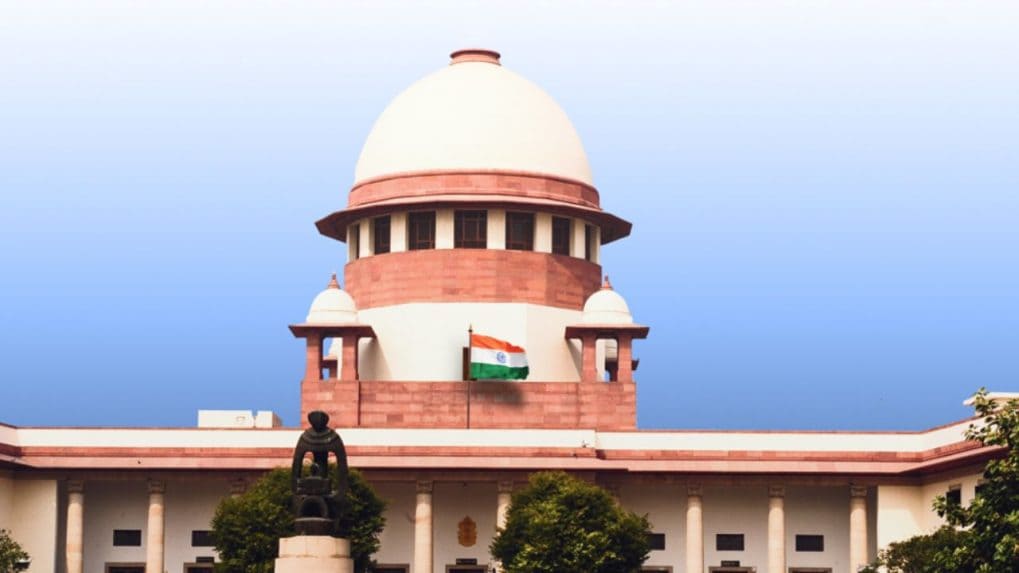How it Works
WPP, Havas, Omnicom: Are advertising’s biggest holdcos recasting agencies as AI Operating Systems?

In a dramatic and unprecedented move, the Government’s counsel, in an ongoing Supreme Court case over the taxation of online gaming platforms, took a unique step to make a point: he joined a fantasy cricket contest himself.
To establish that fantasy sports constitute betting and gambling—and not a game of skill— V Chandrashekara Bharathi, panel counsel representing government of India created an account with the username “Betagama2704” on Fantasy Sports platform My11Circle, completed Know-Your-Customer (KYC) verification, and participated in a real-money contest on the platform owned by Play Games 24x7 Pvt. Ltd.
The move came as part of a larger argument that fantasy sports outcomes are entirely dependent on the performance of real-world players, leaving little to no room for actual user skill. “Even though I analysed the players and selected what appeared to be a competent team, the outcome was purely dependent on how those players performed on the day of the match,” the counsel submitted to the court.
The counsel’s submission included a detailed step-by-step walkthrough of his gameplay on the fantasy sports platform My11Circle. He selected a contest called “4X or Nothing”, where a ₹75 entry fee could potentially yield a ₹300 reward if the user placed in the top 400 ranks out of a possible 2,000 participants. After topping up the in-app wallet with ₹1,000 through UPI, he entered the contest.
Interestingly, the user didn’t even select players based on personal analysis. Instead, he opted for a pre-set team suggested by cricket experts featured on the app—Sourav Ganguly and Robin Uthappa. The team included players from both India and England. Ravindra Jadeja was appointed captain and Joe Root vice-captain, resulting in their in-game points being multiplied by 2x and 1.5x, respectively.
The counsel placed 229th in the contest, netting ₹300 in winnings, which were later withdrawn. "This outcome was determined entirely by the live performance of the cricketers. There was no skill involved in the selection or execution," he argued.
“Classic Case of Betting Disguised as Entertainment”
“This is not a game of skill,” the counsel submitted. “It is a classic case where people place hope in players' real-time performances and simply leave the rest to chance. They play no active role in determining the final result.”
He went on to describe this as a “side-betting” model, stating that even choosing a team based on expert recommendations reflects no actual input from the user. “It’s just chance — packaged with statistics and celebrity endorsements.”
The submission aims to challenge the standing High Court decisions from Punjab & Haryana, Bombay, and Rajasthan, all of which previously declared fantasy sports as a game of skill. The Revenue’s position is that these judgments did not consider the GST implications thoroughly and were passed without fully hearing the Union or State Governments. Notably, the Supreme Court had granted liberty to the Centre to file review petitions on the GST aspect, which are still pending.
The fantasy sports companies, represented by senior counsel Arvind Datar, had argued that the matter is already settled law and that previous Special Leave Petitions (SLPs) had been dismissed by the Supreme Court, reinforcing the “game of skill” classification.
However, the government rebutted this by stating that dismissals of SLPs without detailed reasoning do not amount to binding precedent under Article 141 of the Constitution. "Just because the Court stated 'no merit' does not mean the issue is closed forever,” the counsel added, citing the Kunhayammed judgment which clarified the doctrine of merger and its limited application when no detailed judicial reasoning is provided.
The central question before the Court is whether fantasy sports involve sufficient user skill to be exempt from GST under Entry 6 of Schedule III—which excludes betting and gambling from taxable “supply.” If the Supreme Court ultimately rules that fantasy sports are games of chance, platforms may face retrospective tax liabilities running into thousands of crores.
As things stand, the government insists the activity should be classified as gambling, which would bring it under the 28% GST slab, with the entire entry fee being treated as the taxable value.
The Supreme Court is hearing multiple petitions on the issue, with the matter expected to have wide-reaching implications for India’s booming online gaming industry, tax law, and regulatory frameworks. The final judgment may redefine the legal understanding of online real money games in the country.
From purpose-driven work and narrative-rich brand films to AI-enabled ideas and creator-led collaborations, the awards reflect the full spectrum of modern creativity.
Read MorePraveen Someshwar, Managing Director and CEO of Diageo India, joins the Grand Jury of the Storyboard18 Awards for Creativity, highlighting the awards’ focus on work that blends cultural relevance with strategic and commercial impact.